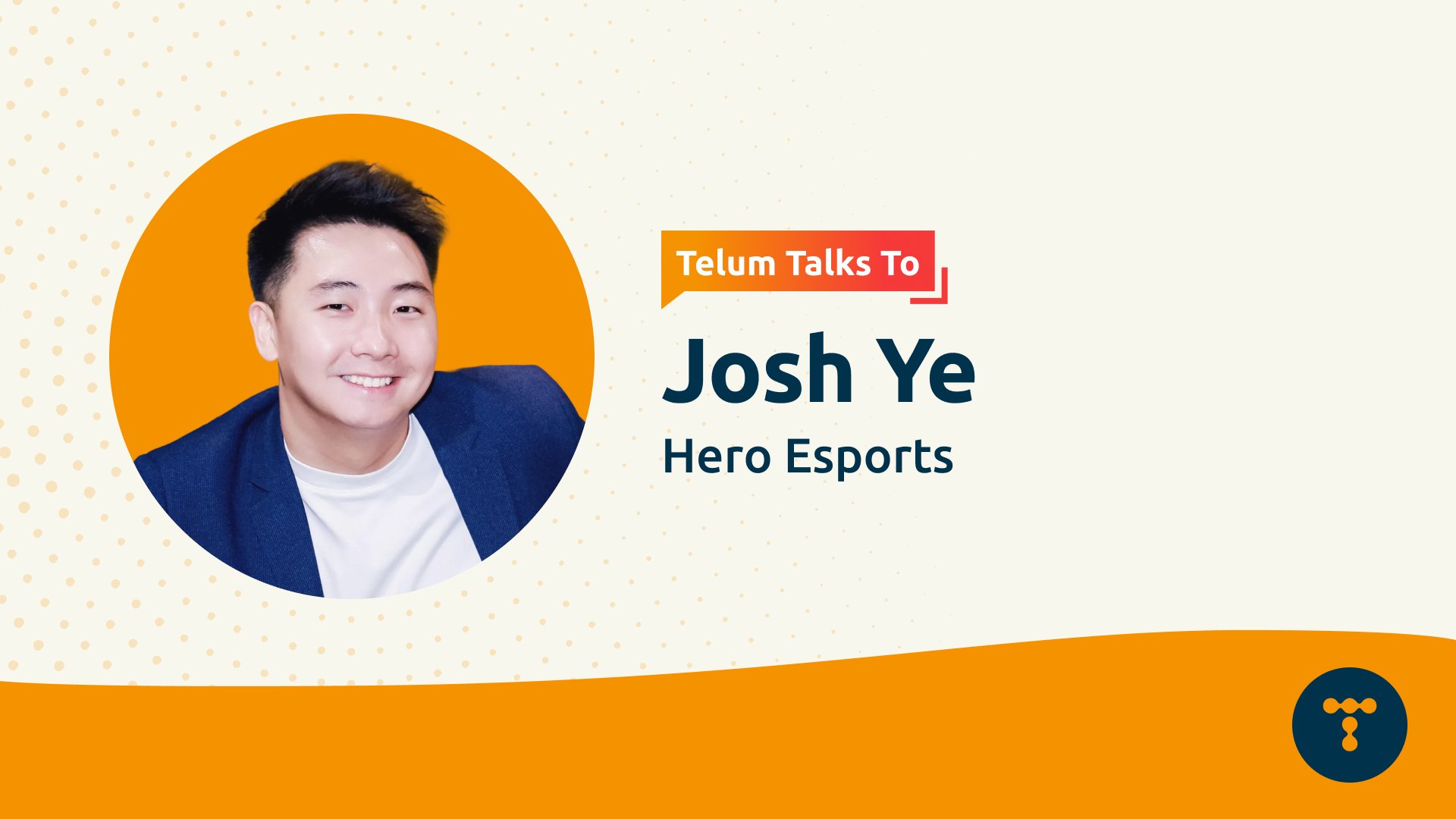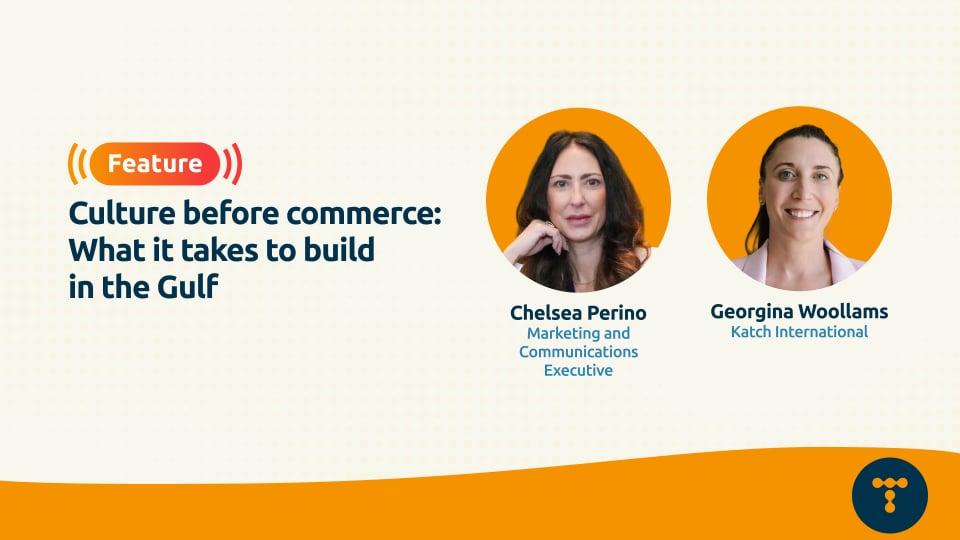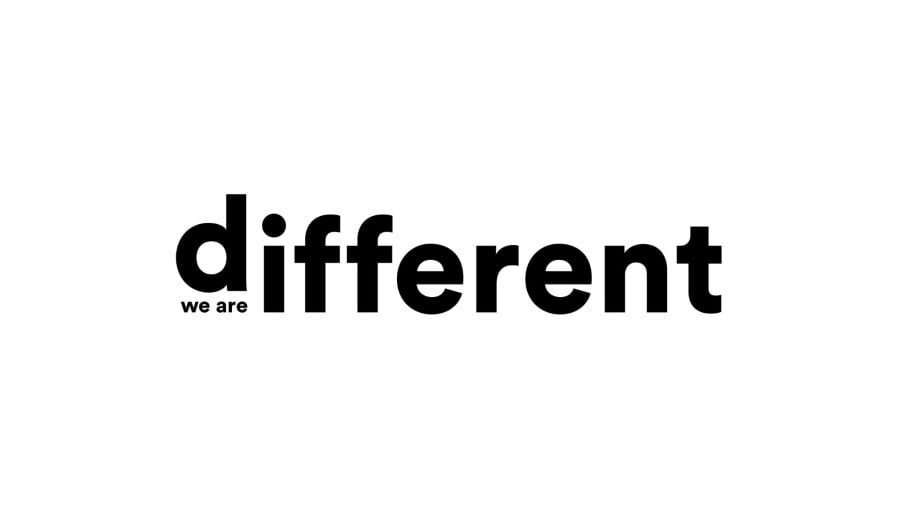From small-scale tournaments hosted in university computer labs in the early 1970s to global competitions filling professional sports arenas, esports has always been powered by its people and fans.
Josh Ye spent his early career at Reuters chronicling the industry’s explosive rise. Now, as Head of Communications at Hero Esports, he’s driving fan and stakeholder communications himself. He joins Telum Media to discuss fan engagement, offline connections, and unlocking the industry’s future of possibilities via reputation and passion.
From when you started in this industry till now, how has the narrative around the esports industry and its fans changed?
There has been a tremendous change in the recognition of esports as a key part of the future of sports.
A decade or two ago, there was still the impression that esports may be a compartmentalised hobby. Nowadays, esports is no longer a niche phenomenon. Younger generations now watch esports tournaments and professional players in action and follow esports just like they would traditional sports. For those of us that have grown up alongside esports, it is simply a sport and there’s no question that esports players are considered athletes.
This recognition largely comes from these fans, who see esports as a viable career and business opportunity. Brands and sponsors that have taken notice are tapping into the industry and its massive, young, and diverse audience. This change has brought the sport to the masses in a way that has been amazing to witness and contribute to.
And it is precisely the accessibility of esports that makes it attractive - anyone can compete anywhere with anybody, and an individual’s physical attributes, gender, and age take a backseat before the gamer ID.
How has esports PR evolved with increased influence of fan communities? What is PR’s role in fostering long-term trust and loyalty?
Esports may have started as LAN parties among game enthusiasts, but as the industry grew and gained recognition for its potential and status over time, as PR professionals, we have adjusted our sense of responsibility to match this advancement.
We're now builders and protectors of a fast-growing and exciting form of sports. As such, we must take care of the fans, athletes, and overall sporting experience. The esports journey should be positive and with integrity.
In fan and stakeholder communications, our work is to continue building connections and fostering inclusion. In this process, we actively seek feedback and encourage collaborative efforts to shape the industry in the right direction. With the trust and recognition that esports has earned, we must protect this sport’s future.
How do you adapt storytelling for different audiences - from loyal fans to first-time gamers - and across demographics like age, gender, and culture?
Our storytelling strategies are built on the same principle: human connection. That is the charm of esports, and we want each tournament to be a connecting experience.
Our events aim to deliver the best esports experience and connect fans with other fans and the athletes. Once we mark this end goal, we adapt it to the market or demographic specificities.
For first-time gamers, we want them to know that everyone's welcome no matter the demographic. This is an industry that transcends borders and gender. For example, in the Chinese market, where we've built up many of our key events, women often make up more than 50 per cent of the offline audience at our arenas and stadiums. Some may be surprised by this stat, but attending esports games with family and friends has truly become a lifestyle.
For long-time fans, we aim to create experiences that take them back to that first moment when they first connected with their esports peers and communities. Today's tournaments are bigger and more elevated compared to those 10 years ago, but the passion remains as pure as they remember it to be.
Our message is the same, with only a difference in angle: loyal fans can entrust their passion with us and, at the end of the day, they'll also be taken care of.
We're witnessing history being made every day. International, multi-title tournaments and premier experiences are being built as we speak. The Esports World Cup is in its second year, and the International Olympics Committee is set to hold the inaugural Olympic Esports Games in 2027. At Hero Esports, we held the inaugural Hero Esports Asian Champions League this year. Global institutions and governments of all levels are investing in this industry.
We're all aiming to provide top-level experiences never seen before in esports. For PR professionals, this means looking at how we’re telling this story, cultivating cherished experiences for fans and stakeholders, and fostering sustainable connections for all.
Ultimately, it’s about building cultural moments that are shared by millions, if not billions, of people. With the Olympic Games, the average person may not normally follow sports, but many will make a point to attend an Olympic event because of the cultural experience. With the premier experiences emerging in esports, we can build similar human connections and moments that spectators and participants would want to talk about and revisit - and not miss out on.
What advice would you give to PR professionals that are looking to break into or to grow in this industry?
I entered the news industry out of respect for the industry as well as a sense of responsibility to tell stories with integrity. Subsequently, I moved into esports PR with the same feelings: responsibility and respect.
And I truly believe that people nowadays can learn some of life's most valuable lessons through esports just like they do through traditional sports: teamwork, sacrifice, hard work, sportsmanship, and resilience. All the emotions felt at every practice, every competition, are genuine and infectious.
For those considering a career or growth in esports, first ask yourself this: Are you committed to guiding the industry to grow in a positive way? Will you be contributing to something you can recommend family and friends?
Second is to stay fit. This goes back to what the IOC’s Christian Klaue said in an earlier interview with Telum Media: “being fit means being prepared” in the sports industry. It's no different in esports.
Esports athletes are fit, especially mentally. They make snap decisions every second, and for esports communicators, this stamina and agility can help us work through a lot of the challenges.
Finally, remember that what we represent the industry and all the people that are building towards the future of esports. Every day I go to work, I'm amazed by the extremely young and diverse group of coworkers around me - from the directors and analysts to the referees and stage engineers, you name it. It's important to remember that we are here for all these people.

Telum Talks To: Josh Ye from Hero Esports
Telum Media creating connections
Get in touch to learn more
Hazel Lim checks into latest senior hospitality role
Noor Bahman steps up at agency
You might also enjoy
When The Executive Centre (TEC) entered Dubai in 2018, flexible workspaces were still relatively niche in the Middle East market. For Chelsea Perino, a Marketing and Communications Executive based in Hong Kong and her team, the challenge was twofold: establishing brand awareness while learning how business is done in the region.
That changed after Covid-19. While many global markets stalled, the region rebounded swiftly. With the rise of hybrid working, the flexible workspace solutions provider fundamentally flipped its business on its head.
The pace of change in the Gulf region is something industry leaders have noticed. Georgina Woollams, Founder and Managing Director of Katch International and whom expanded her agency from London to Dubai more than a decade ago, explained how approaches to brand building and communications have changed over the years as the market transformed:
“The UAE is probably one of the fastest-evolving countries in the world, so we have to adapt to stay on pace continually. With the growth of the country and a recent influx of people from across the globe, we are always finding ways to reintroduce clients to a new audience while simultaneously storytelling to those in the UAE who already know the brand.”
Relationship building in the Middle East and pitfalls to avoid
Chelsea quickly observed that business culture in the Middle East is highly relationship-driven.
Unlike in many Western markets, meetings often begin with personal conversations about family, daily life, or current events before shifting to commercial discussions.
“Making small talk before discussing business details shows that you care about the bigger story behind an initiative. Not doing so can come across as pushy or insincere,” she notes.
Going hand in hand with relationship building is the grasp of cultural nuances and the exhibition of cultural sensitivity. Yet, an often-overlooked aspect for foreign communicators is the sheer diversity of the region, both in terms of language and personas.
Chelsea highlighted the common misconception of treating the Middle East as a homogeneous market. Each territory has its distinct characteristics and media landscape. Dubai and Abu Dhabi, despite being part of the same country, maintain different business personalities. Saudi Arabia, Qatar, Azerbaijan, and Oman each possess unique cultural, economic, and media environments, with varying dialects of Arabic. She added that success in regional communications requires understanding of both English and Arabic media ecosystems.
Georgina pointed out that a 'pay to play' dynamic is prevalent in certain territories, which might be hard to get around, especially if you are in the real estate or trade industries.
“A lot of international people forget that the majority of the wealth in that region is sitting within the Arabic family holding - it would be naive not to take that side of the demographics seriously,” Chelsea observed.
Tailoring communication to different demographics
Beyond building relationships in person, understanding audiences’ preferred communication platforms across Middle Eastern countries is crucial for successful engagement. Each market has distinct preferences shaping both B2B and B2C communications that brands must adapt to.
While longer-form storytelling and business outlooks would be interesting to audiences of traditional media, social media communication in the region is undeniably on the rise. “X (formerly Twitter) usage in the region is high - it’s actually one of the preferred communications platforms - which is why it is important to consider opening branded channels to drive more tailored engagement when an organisation is expanding into the region,” Chelsea exemplifies.
Georgina echoes Chelsea’s sentiment on the importance of localising communication channels and their content to different audiences. On numerous occasions, she has seen international brands enter the market and think one rule fits all, but that is simply not the case. “For our clients, this is a journey of education, understanding what competitors are doing and how they are doing it right. We then adapt one of their campaigns culturally to show them the great results we can achieve, so they let us continue with this strategy.”
On the other hand, young people aged under 30 constitute more than half of the population across the Middle East and North Africa region, with recent estimates from the OECD placing this figure at around 55%. In this context, Georgina also advises PRs to “be ready to adapt; Generation Alpha are tech-led, so find ways to communicate with them in a manner they will respond to. Generation Z want to know you care, so you need to speak with authenticity.”
Advice for first-timers
When asked what guidance she would offer to international communicators entering this market for the first time, Georgina honed in on localisation and authentic engagement.
“It is essential to localise the content, build genuine relationships with specific communities, not just by sponsoring something, but by truly finding a way to engage with the audience you are targeting.”
Chelsea encourages brands to inform their marketing and communications campaigns through a competitive audit. A test-and-learn approach is also highly beneficial, she has found. Rather than crafting an extensive year-long strategy immediately, she recommends focusing on shorter cycles:
“For Q1, focus on specific initiatives and channels, assess what works, and use those insights to inform your strategy for Q2. If you find success with certain activities, amplify them; if something doesn’t resonate, pivot and explore new options.”
She also urged brands to think carefully about where they launch within the UAE, rather than defaulting to Dubai.
“Each Emirate has its own identity,” Chelsea explained. “Some are known for luxury and glamour, some for financial strength and investment, and others are emerging as entertainment hubs.
“Don’t automatically assume Dubai is the best starting point for your initiatives just because it’s the most familiar to an international audience.”
Full-service communications agency, iD Collective, has welcomed two new clients - Quadrant and Kathryn Eisman.
Fashion and lifestyle brand, Quadrant, has tapped iD Collective to lead strategic communications and event management for its Melbourne pop-up. The agency will deliver a campaign to drive awareness and buzz, as well as consumer and community engagement. The multifaceted strategy will encompass strategic media relations, activation logistics and a VIP event, guestlist management, and storytelling.
"We're thrilled to be supporting Quadrant's full-throttle arrival into Melbourne and having the opportunity to activate in line with the Australian Grand Prix - such an epic sporting and cultural moment," said Amanda Booth, Executive Director of iD Collective.
"As experts in the fashion, sport, and the lifestyle space, we are uniquely positioned to bring this global brand to life for a local audience. Our depth of experience enables us to craft creative communications strategies that cut through the noise, drive impact, and build lasting brand equity."
The agency has also announced that it has been appointed as Australian communications partner for journalist, author, and Founder & Creative Director of High Heel Jungle, Kathryn Eisman. The partnership will see iD Collective lead strategic communications in Australia for Kathryn and High Heel Jungle, amplifying her profile across fashion, lifestyle, business and culture, while supporting continued brand growth, media visibility and creative collaborations.
Independent earned-first creative agency, We Are Different, has announced new senior appointments, promotions, and expanded training initiatives.
The agency said the decision comes amid growing market volatility, as it invests in creative leadership, talent, and culture to drive sustainable growth and long-term client value across its PR, social, and influencer divisions.
Jenna Orme has joined the senior leadership team as Head of Difference. Formerly Managing Director at TBWA's FleishmanHillard, she brings more than 18 years of global agency experience across business leadership, integrated comms, and crisis management. In the new role, Jenna will be in charge of strengthening the agency's people-first approach, focusing on team growth and creative excellence.
Siobhan Veddovi-McCaughan has been promoted to Group Performance Director, stepping into the senior leadership team after joining the agency in January 2024. She has delivered work across consumer tech, travel, and food and beverage verticals, and will now oversee earned-first creative work, client partner performance, and team development.
The agency has also welcomed Helaina Young as Performance Executive within its earned division, joining from alt/shift/ in a newly created role.
Alongside new hires and promotions, Different has announced investment in staff development initiatives:
Coaching Culture
Led by industry veteran and former One Green Bean CEO, Claire Salvetti, this initiative gives Different's team members access to an executive coach for one-on-one and group sessions. The program aims to unlock leadership capability at every level by building confidence, sharpening judgement, and affirming the power of doing things differently.
Culture Club
The program draws inspiration from counter-culture movements - from art to astrology, and activism to the creator economy - to provoke different thinking and sharpen cultural instinct. The result is fresher thinking, stronger collaboration, and more culturally resonant work for clients.
Different Academy
The program blends hands-on learning, live client briefs, and applied AI capability to upskill the next generation of earned-first leaders. It embeds learning into the agency's day-to-day operations, improving strategy, creative, client outcomes.
"When teams are supported, challenged and trusted, it shows up in the work," said We Are Different Founder and Director, Stuart Terry.
"We're offering clients an agency culture where ambitious people at all levels are empowered to do the best work of their careers. Partners feel that in the passion of the team, the quality of the thinking and the great results we achieve together."
He added that investing in people remains the agency's competitive edge.
"It's fundamental to do work that earns attention, builds trust, and delivers real commercial impact. Our clients benefit from teams that combine craft excellence with a genuine desire to do things differently."


